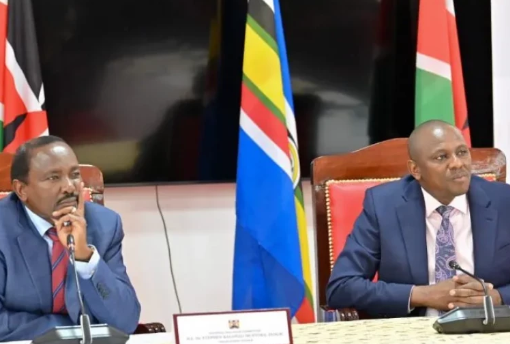The Central Bank of Kenya CBK has urged the public to honor their payment obligations on their credit facilities when they fall due.
This, according to the CBK, will enable them to build a good credit history based on their payment behavior and thereby obtain loans at better rates.
In a press statement Monday announcing the roll out of a Credit Repair Framework by commercial banks, microfinance banks and mortgage finance companies, CBK says when borrowers experience challenges in repaying their loans, they should proactively engage their lenders.
The Framework seeks to improve the credit standing of mobile phone digital borrowers whose loans are non-performing and have been reported as such to Credit Reference Bureaus (CRBs).
According to the statement, CBK says the limited Framework will expire on May31, 2023 and that the concerned institutions will contact their eligible borrowers to provide them with further details of the Framework.
“Through the Framework, the institutions will provide a discount of at least fifty percent of the non-performing mobile phone digital loans outstanding as at end of October 2022, and update the borrower’s credit standing from non-performing to performing,” the statement read.
The institutions, CBK says will then enter into a repayment plan with the borrowers for a period up to May 31, 2023, for the balance of the loan and upon expiry of the Framework, the credit standing of the borrowers with respect to these loans will depend on their repayment Performance during the six-month period.
The Framework will also cover loans with a repayment period of 30 days or less and were offered by these institutions through mobile phones. It is anticipated that the Framework will enable over 4.2 million mobile phone digital borrowers, adversely listed with CRBs, to repair their credit standing.
The total value is approximately Sh.30 billion, equivalent to 0.8 percent of the gross banking sector loan portfolio of Sh3.6 trillion at end of October 2022.
The borrowers covered in the Framework are mainly in the personal and microenterprises sectors and were adversely impacted by the COVID-19 pandemic either through the loss of employment and closure of their micro enterprises
The adverse effects of the pandemic continue to linger for the covered borrowers and accordingly the Framework is expected to enable this segment of borrowers to access credit and other financial services as they rebuild their lives and livelihoods.
By Wangari Ndirangu





